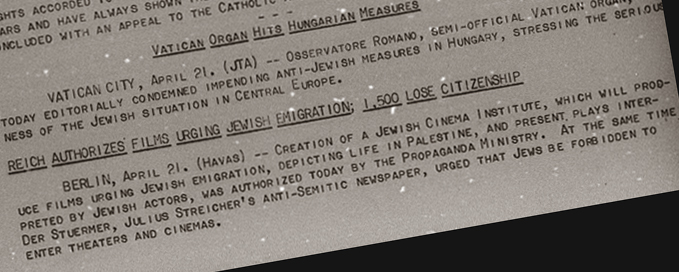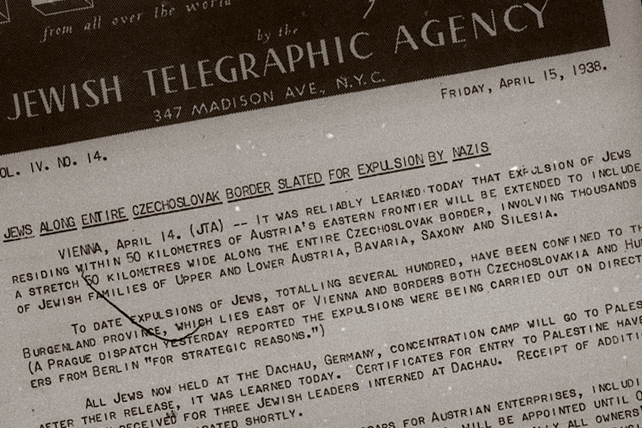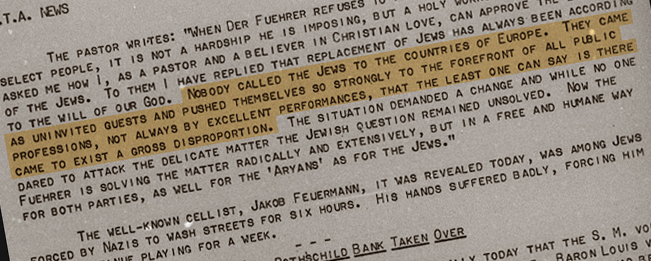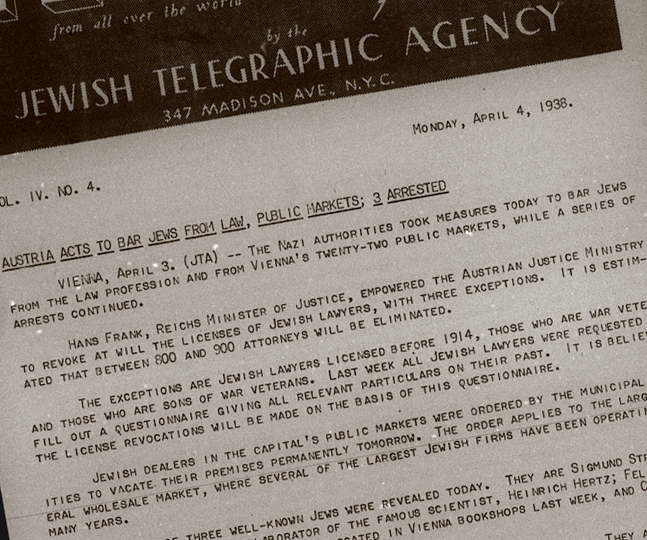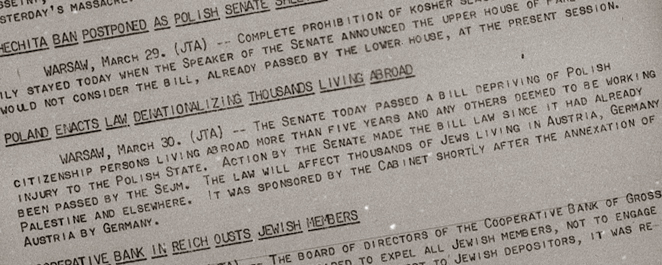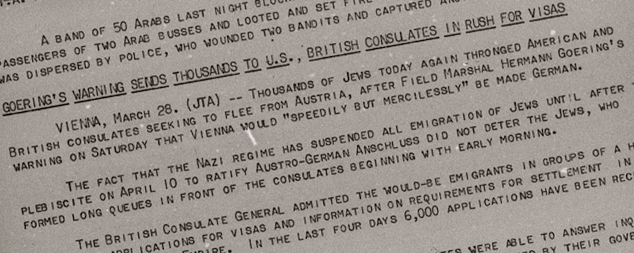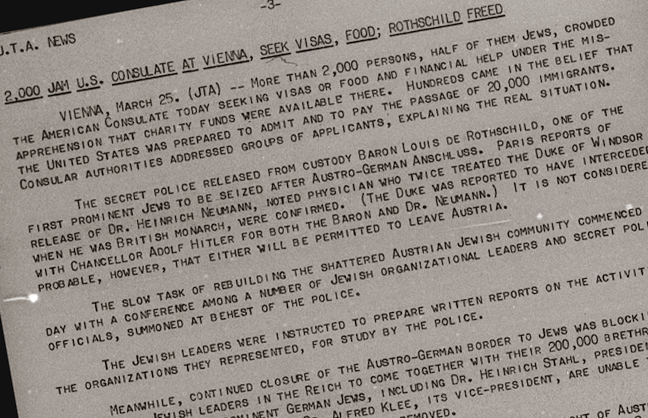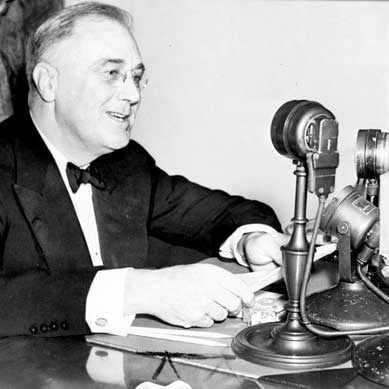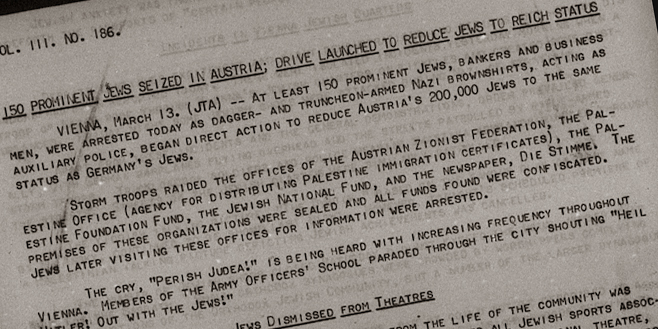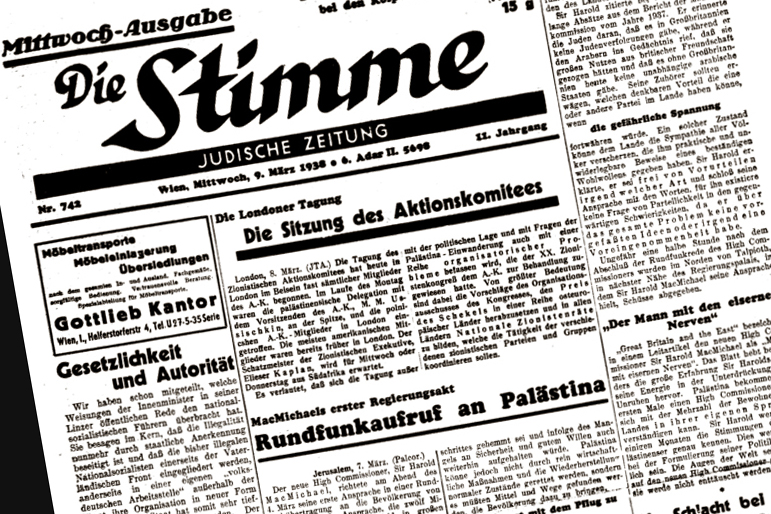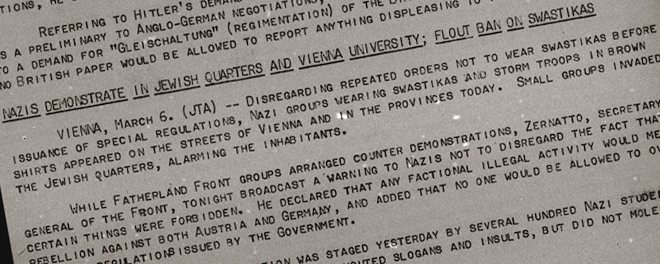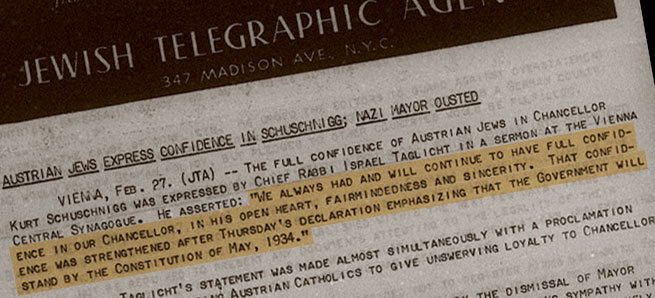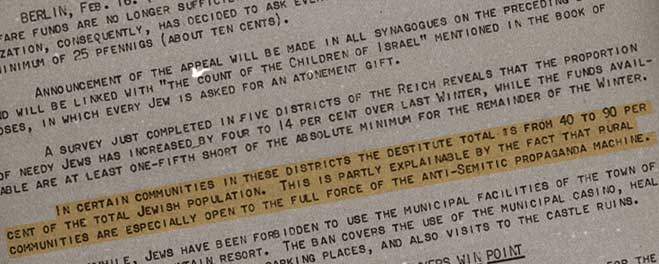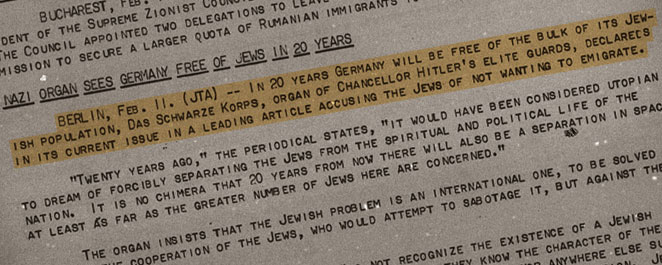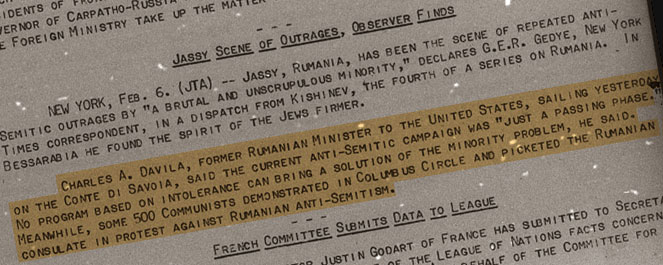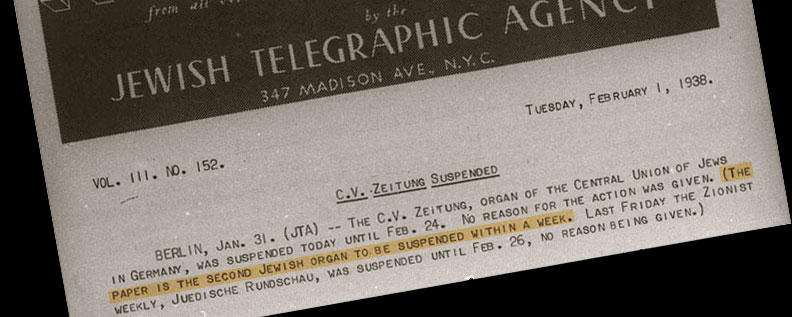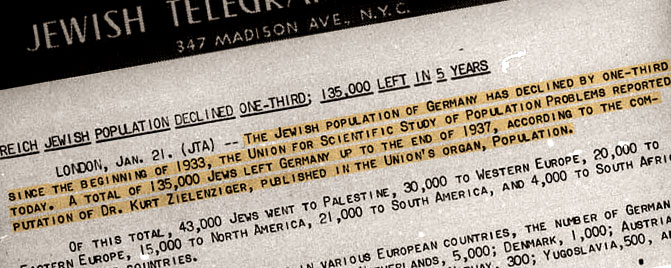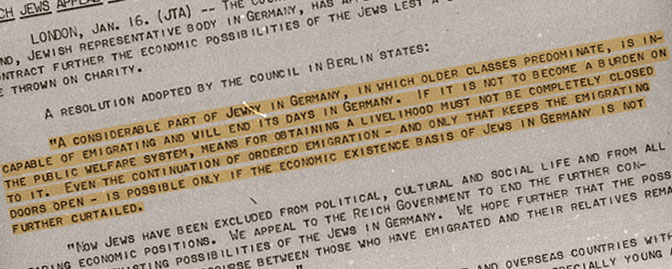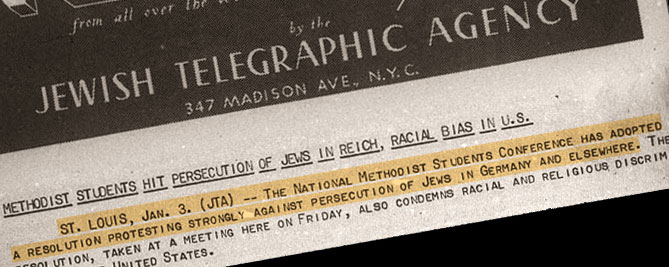Stuck in No Man’s Land
League of Nations intervenes for 56 expellees
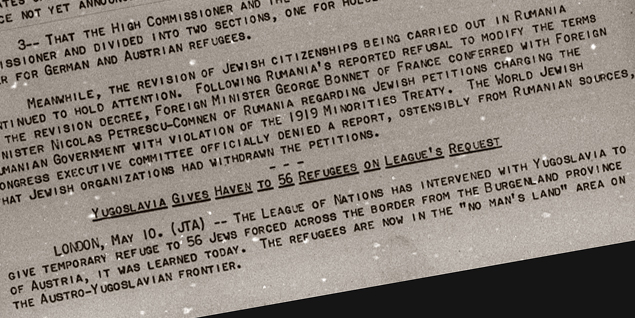
Belgrade
The annexation of Austria by Nazi Germany in March 1938 had brought an abrupt end to 1,000 years of Jewish life in the Burgenland region, Austria’s easternmost state. The expulsion of the small Jewish population, carried out by the SS, local Nazi officials, and civilian collaborators, commenced immediately. This article by the Jewish Telegraphic Agency reports on the League of Nations’ intervention on behalf of 56 expellees who had ended up in “no man’s land” in the border area between Austria and Yugoslavia. The League’s High Commissioner for German Refugees requested the temporary accommodation of the displaced persons by Yugoslavia, to be followed by permanent resettlement elsewhere.
SOURCE
Institution:
Collection:
“Yugoslavia Gives Haven to 56 Refugees on League’s Request” 
Source available in English








































